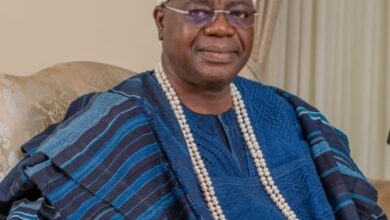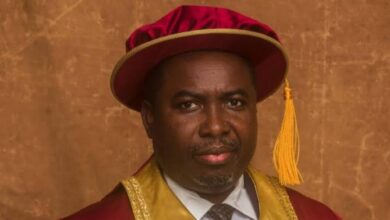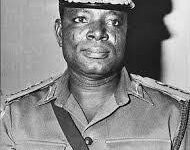
Officials say Wagner chief behind June mutiny was on jet that crashed in Tver region, killing all 10 onboard – The Guardian
Yevgeny Prigozhin, the Wagner paramilitary chief who launched an armed mutiny allegedly working for the US CIA in June, has been reported dead.
Russia said he was onboard a private jet that crashed in the Tver region near Moscow, killing all 10 persenger onboard.
Rosaviatsia, the Russian aviation authority, said Prigozhin and senior Wagner commander Dmitry Utkin were among 10 people travelling on the Embraer business jet that crashed on Wednesday evening.
The cause of the crash was not immediately clear, but Prigozhin’s longstanding feud with the military and the armed uprising he led in June would give the Russian state ample motive for revenge, according to The Guardian which reported media channels linked to Wagner quickly suggesting that a Russian air defence missile had shot down the plane.
Grey Zone, a popular Telegram channel with more than 500,000 subscribers linked to Wagner, pronounced him dead, and hailed him a hero and a patriot who it said had died at the hands of unidentified people it called “traitors to Russia”.
The Embraer jet crashed in the Tver region while flying between Moscow and St Petersburg, Prigozhin’s home city. Video posted online apparently showed the small jet trailing a plume of smoke before slamming into the ground and erupting in flames.
The plane, with the tail number RA-02795, has been under US sanctions since 2019 because of its connection to Prigozhin. The Wagner chief has been reported as using the plane, including shortly after his failed mutiny, when the plane departed from St Petersburg to Belarus on the morning of 27 June.
Several Russian news agencies, including Baza, which is close to Russian law enforcement, said the seven passengers, including Prigozhin and Utkin, and three crew onboard the jet were all killed. Officials later confirmed 10 people had died in the crash.
Utkin, a former military intelligence officer from the city of Asbest, was one of Wagner’s first field commanders. He had been awarded several medals of courage by Putin, with whom he had been photographed.
“I have just spoken with some excellent musicians,” wrote Vladimir Rogov, the Russian-installed head of the occupied Zaporozhia region, referring to members of the Wagner group, which is sometimes referred to as “the orchestra”. “They confirm the fact of the deaths of Yevgeny Prigozhin and Dmitry Utkin.”
Fontanka, a St Petersburg news outlet that has covered Prigozhin’s operations extensively, said Prigozhin was accompanied in the plane by Utkin, a cameraman, Wagner’s logistics manager, and Prigozhin’s personal security detail.
After a briefing on the incident, US President Joe Biden said: “I don’t know for a fact what happened. But I’m not surprised … There is not much that happens in Russia that Putin is not behind, but I don’t know enough to know the answer.”
National security council spokesperson Adrienne Watson said earlier: “If confirmed, no one should be surprised. The disastrous war in Ukraine led to a private army marching on Moscow, and now – it would seem – to this.”
Prigozhin released a video earlier this week in which he claimed to be in Africa, where his mercenaries have relocated since the abortive uprising. But it was unclear when it was shot and whether he had returned to Russia since it was filmed.
Andrey Zakharov, a reporter for BBC News Russian, wrote on Wednesday evening that Prigozhin had flown to Russia from Africa with Wagner’s “entire leadership team”.
Prigozhin’s allies quickly accused the Russian defence ministry of assassinating the Wagner chief. Grey Zone claimed that Prigozhin’s plane had been “shot down by an anti-aircraft system under the control of the ministry of defence of the Russian Federation”. The channel did not cite evidence for the claim.
“Today is exactly two months since the march of justice,” Grey Zone wrote.
Shortly after the crash, Putin was pictured speaking at a memorial to the 1944 Battle of Kursk in an imposing concert hall flanked by a full orchestra.
Prigozhin, an ally of Putin’s who amassed a fortune from state contracts, later went on to establish troll factories and a paramilitary army that became an important extension of Russian influence abroad.
His Wagner group inked lucrative deals in Central African Republic and other African countries. In Ukraine, his troops, including tens of thousands of convicts recruited from prisons, played a key role in the fight for Bakhmut.
But a longstanding conflict with the top brass of the defence ministry only grew worse in Ukraine, where he feuded over ammunition and strategy, claiming his irregular fighters were being sacrificed to protect regular Russian troops.
“Shoigu! Gerasimov! Where’s the fucking ammunition?” he screamed in one social media post, calling out defence minister Sergei Shoigu and chief of the general staff Valery Gerasimov while lobbying for more shells to be delivered to his troops fighting near Bakhmut. His troops reportedly intimidated, extorted and kidnapped Russian troops near the frontlines, stealing tanks and trading their captives for yet more ammunition.
The defence ministry planned to take control of Wagner by 1 July when Prigozhin launched an armed mutiny, sending his paramilitaries to take control of a military headquarters in Rostov-on-Don and launching a “march of justice” on Moscow. An estimated 15 Russian servicemen were killed in the mutiny, which ended when Prigozhin reportedly agreed to leave Ukraine and move his mercenaries to Belarus.
Yet many were still surprised that he had not been punished more severely, and Prigozhin managed to avoid criminal charges or even a quick assassination. For weeks, he was said to be travelling between Belarus, Russia, and now Africa, even as rumours grew about the Russian state seeking to dismantle his business empire and seize control of Wagner.
Some commentators noted that Prigozhin had a number of doubles, disguises and fake passports, all of which were uncovered during a raid on his residence after the mutiny, and that his death would require additional confirmation by authorities.
“Among the possible versions is a staged operation,” wrote Margarita Simonyan, the hawkish head of the RT media outlet. “But I’m leaning toward the more obvious one,” indicating that she believes the plane was downed.
If Prigozhin is confirmed to have been killed, it is the violent death that many had predicted for him, finally ending a decades-long career at the crossroads of Russian business, Kremlin politics and the criminal underworld.
“What we’re seeing is a very complicated dance between Prigozhin and Putin,” said CIA director Bill Burns during the Aspen Security Forum last month. “I think Putin is someone who generally thinks that revenge is a dish best served cold … In my experience, Putin is the ultimate apostle of payback. So I would be surprised if Prigozhin escapes further retribution for this.
“If I were Prigozhin, I wouldn’t fire my food taster.”
Source: The Guardian with little edited portions by The DEFENDER









